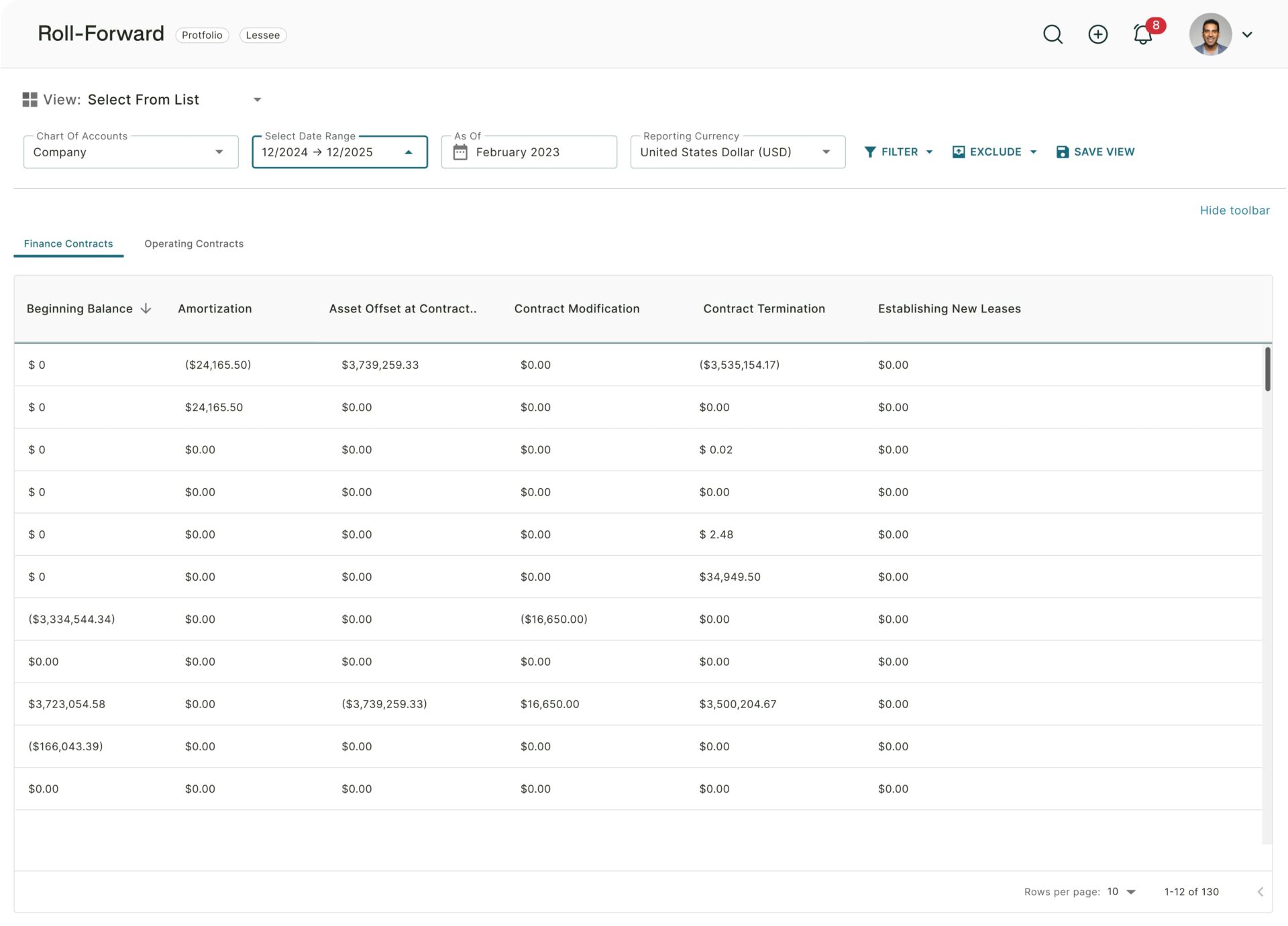Lease accounting standards under ASC 842 and IFRS 16 have been largely successful in improving financial transparency. By bringing most leases onto the balance sheet, these standards give investors, regulators, and creditors a clearer view of a company’s financial position. But how has this new world affected accountants?
They’re drowning in a sea of complexity.
Lease accounting was never easy – but now it’s exponentially more demanding. Both operating and finance leases must be recorded, and the volume of lease obligations, often hidden within broader contracts, has grown substantially.
Accountants must now exercise greater judgment and conduct more detailed analysis. Each lease requires combing through dense agreements to extract critical data, all while working under tighter deadlines and amid industry-wide staffing shortages.
Manual processes fail to keep up
Many accountants are still relying on Excel-based processes and legacy software platforms that require a heavy manual lift to handle the volume and complexity of modern lease accounting. These include:
- Identifying and classifying leases by manually reading through hundreds of pages of lease agreements, over countless hours
- Manually entering data to reformat lease information for calculation, analysis, and reporting – a labor-intensive, tedious, and error-prone process
- Modifying leases over time, after the initial work of evaluation – another huge time and resource sink
Will AI replace accounting?
AI is quickly becoming a powerful solution to today’s lease accounting challenges – automating many of the manual, time-consuming tasks that burden accounting teams.
But does that mean AI will replace accountants?
Not at all. Instead, AI will augment the role of accountants, freeing them from repetitive work so they can focus on the areas that demand strategic thinking, professional judgment, and human insight.
Let’s take a closer look at how AI is transforming lease accounting.
How AI-driven automation impacts lease accounting
AI-powered tools are automating both routine data tasks and more complex processes. This not only reduces errors and boosts efficiency, but also helps ensure compliance with evolving standards.
- Automated calculations and fewer manual tasks. AI can quickly upload, extract, and analyze lease data – performing calculations in a fraction of the time it would take manually.
- Streamlined lease data management with real-time updates. AI continuously reviews lease data and flags areas needing updates based on regulatory changes, contract modifications, or business events.
- Accurate compliance tracking and audit readiness. AI helps ensure accounting standards are applied correctly and maintains a complete, searchable audit trail for full transparency.
- Improved financial reporting and strategic focus. By accelerating reporting workflows, AI frees accountants to spend more time on strategic analysis, forecasting, and managing the broader lease portfolio.
AI can automate ASC 842 compliance
ASC 842 requires leases over 12 months – for operating and finance – to appear as right-of-use (ROU) assets and liabilities. This shift increases the complexity of lease management, making it a perfect fit for AI automation.
Case Study: A global mining and resources leader transformed their lease accounting system with Trullion’s AI platform
Bradken replaced their Excel-based process, which relied on manual data extraction and entry. Since implementing Trullion, they reduced time spent on lease management by 25% and shifted entirely to automation-driven accuracy. Learn more about Bradken’s journey.
How to find the best AI lease accounting software
When ASC 842 standards came into effect in 2020, many teams rushed to adopt accounting software to meet the challenge. In hindsight, some may have acted too quickly – without fully evaluating which solution best fit their unique business needs. Since then, AI has also advanced significantly, unlocking powerful new capabilities.
Here are the key features that modern finance teams should prioritize when looking for new AI accounting software:
- Automated data extraction and IBR calculations. Advanced, AI-driven accounting software should be able to analyze leases and calculate Income-based Repayment (IBR) autonomously.
- Compliance standards and end-to-end encryption. Your AI platform should analyze leases to assess compliance with accounting standards, flag anomalies, and recommend corrections. End-to-end encryption is important to protect sensitive financial data.
- Traceability and a single source of truth. Modern accounting platforms should provide complete traceability and maintain a centralized, reliable source of data – ensuring consistency and transparency across your organization.
AI in accounting: Now is the time
AI-powered accounting has entered a new era. Faster implementation, better integration with ERP systems, and cloud-based support mean that the technology is more accessible – and enterprise-ready – than ever before.
With the dawn of agentic AI, the role of accounting itself is also changing. This means less time buried in documents and the drudgery of manual tasks, and more time influencing business strategy.
If you’re exploring a modern accounting platform to help save your team time, money, and resources, talk to our team. We’ll help you find the right solution for your firm.





